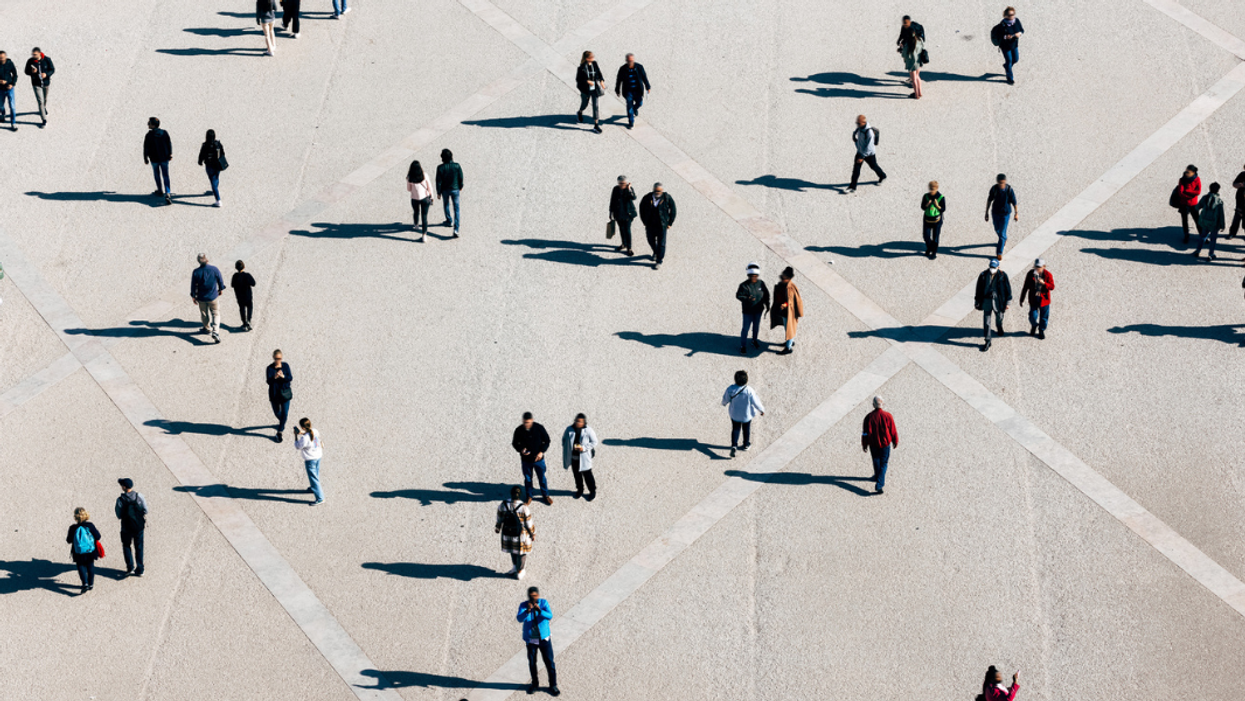Rothberg leads Einhorn Collaborative, a nonprofit foundation dedicated to addressing America’s growing crisis of connection by advancing the science and practice of empathy, mutual understanding, and relationship building in the United States. She leads a dedicated team that comes together around a shared question: How can we live and work together in ways that both embrace our differences and nurture our shared humanity?
In a conversation with Eboo Patel on his podcast, journalist Amanda Ripley described high conflicts as “whenever you see contempt, disgust, violent rhetoric, and action… and more personally, you can feel it internally.” I felt a sense of clarity when I heard this description. Maybe that is why I have had trouble finding the words when people ask me the seemingly simple question: How are you?
Over the past months, we have seen versions of high conflict play out in the U.S. on social media and college campuses, as well as in our workplaces and the halls of Congress, in response to the October 7 terrorist attacks by Hamas against Israeli civilians and the ongoing war and humanitarian crisis in Gaza and Israel.
In the wake of such profound ruptures in communities across our country, as Executive Director of Einhorn Collaborative, a non-profit foundation working to build social connection and cohesion for well over a decade, I have received many messages from friends, family, and colleagues asking what it will take to continue to bridge divides at this moment, against a societal backdrop of heightened ostracization, “othering,” and the absence of belonging felt by many Americans.
Answering this question has become increasingly challenging, and I am sure I am not the only one feeling that way. You may be wrestling with this question, too, and I want you to know that you are not alone.
In moments of such wrestling, especially when the hurt feels so close, it's important to find ways to take a step back and ask ourselves a bigger question, such as “What is our collective responsibility at this moment?”
David Einhorn, Trustee and Founder of the foundation where I work, beautifully answered this question in a recent letter to Cornell students, written on the heels of protests and violent antisemitic threats on campus. He looked to our next generation as the possibility and hope we need to build a more pluralistic society, where people of different backgrounds and beliefs work together to build community, find belonging, and draw upon their differences to solve shared problems.
Here is a short excerpt of David’s letter, and I encourage you to read it in full in The Cornell Daily Sun:
"The value of diversity does not come from huddling with your own group. Rather, it comes from engaging with those who are different from you. The whole community benefits when you make that effort to engage. Whoever the ‘they’ is, they proudly wear the same Cornell sweatshirts you do.
Even on contentious issues like the Israeli-Palestinian conflict, you may be surprised by the common beliefs, values, hopes, and fears that you share with someone from a different background, life experience, and perspective. No matter where we live or what faith we practice, we all want to be free from bigotry and hatred. We want to contribute positively to our communities and provide for our families. We want to see our loved ones come home safely at night. And we want to live lives of meaning, with myriad opportunities that help each of us flourish and thrive.
As you confront the crisis of hyper-polarization and divisions at Cornell, I ask that you see the inherent humanity and dignity in all people, especially those with whom you disagree. This creates a campus culture that enables us to build trust and relationships across lines of difference, repair ruptures, and bridge divides."
I can’t help but think that David’s message to and belief in Cornell students can be applied to every facet of our lives today: in our homes, neighborhoods, and workplaces, as well as on our school campuses. Even if you did not go to Cornell, I hope you can see yourself in David’s letter. Let it inspire you to do the greatest good for yourself, the people you love, and the people with whom you fundamentally disagree.
As we have seen in the past month and throughout our history, international conflicts, no matter how far away, have the potential to further polarize the American public and inflame underlying threats of violence. Even though social connection and social cohesion in our country may be harder to achieve in this new context, our shared work of fostering trust among Americans and repairing the social fabric is much needed now.
It will take time to rebuild relationships, empathy, and understanding for many who are affected by the recent events, and it will require all of us. I’m grateful to many of our partners and field-leading organizations like Citizen University, Braver Angels, Interfaith America, Resetting the Table, More in Common, BridgeUSA, Constructive Dialogue Institute, and Millions of Conversations that are meeting the moment with urgency by providing support and resources to communities experiencing rupture and heightened divisions.
In the last few weeks, I keep returning to pieces written by the late Rabbi Lord Jonathan Sacks. I came upon one quote that has since stayed with me, “The world we build tomorrow is born in the stories we tell our children today.” As I put my children to bed each night, holding them a bit tighter and longer these days, I tell them fables like the one about a lion and a mouse and why acts of kindness, no matter how big or small, are never wasted.
When we see ourselves reflected in another human being, we see that our survival and well-being are inextricably linked. May this be our guiding light as we navigate such darkness.
A version of this article was originally published in the Einhorn Collaborative’s newsletter.



















Trump & Hegseth gave Mark Kelly a huge 2028 gift